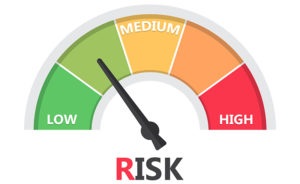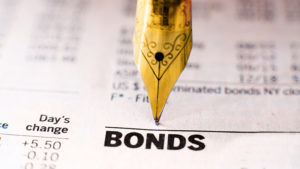Investing HOA Reserve Funds The Right Way

Investing HOA reserve funds is an interesting decision that could set up an association for financial growth. However, any HOA reserve funds investment policy carries its share of risks.
Browse By Category
Sign up for Our Newsletter
Investing HOA reserve funds is an interesting decision that could set up an association for financial growth. However, any HOA reserve funds investment policy carries its share of risks.
Investing HOA Reserve Funds: Yay or Nay?
Any investment decisions should be made carefully and with proper authority. This is especially important when making decisions for a homeowners association. So, when it comes to investing, HOA boards face a hard decision. On one hand, an HOA can usually use the extra funds that investment growth brings in. Thus, an HOA with limited resources can make their reserve fund stretch further with a bit of investment.
On the other hand, the HOA board has the duty to safeguard the community’s funds. Thus, the reserve funds should be available when the community needs them. But, when an HOA decides to invest, they’re sacrificing some liquidity to generate a return. So, it could happen that your HOA might run out of cash when disaster strikes.
Factors to Consider Before Investing HOA Reserve Funds
Your HOA has likely been careful about contributing to its reserves account. If you’re considering investing that money and hoping for more growth, there are several factors you should think about. You should also consider whether your reserves need to be built up more before investing.
1. HOA Reserve Fund Laws
 Can HOA invest money? It depends on what state laws and your governing documents have to say. Some states have certain restrictions on what investments HOAs are permitted to take advantage of.
Can HOA invest money? It depends on what state laws and your governing documents have to say. Some states have certain restrictions on what investments HOAs are permitted to take advantage of.
For instance, in California, Civil Code Section 5515 requires HOA boards to “exercise prudent fiscal management” when it comes to their reserves. This includes making investment decisions. A similar law exists in Oregon, thereby limiting associations to government-insured investments such as treasuries and certificates of deposit, among others.
2. Your Fiduciary Duty to Your Members
A board member’s purpose is to make decisions in the best interest of the community. That also includes the management of HOA reserves. Investing HOA reserve funds can be the best move you can make given the current economy. Or, it could be a better decision to keep your reserve funds somewhere safe.
For this reason, a lot of associations will go with investments like certificates of deposit and another account that is interest-bearing. Although this protects the principal, these types of investments may not grow as much because they are lower risk. On the other hand, it’s a more secure decision that saves your principal and can still earn you some extra cash.
In any case, the community association board is responsible for handling HOA money. Thus, it is not always a good idea to take risks with community funds. If you have the capability to invest some of your HOA reserve funds, there needs to be a balance.
On one hand, the HOA should invest in a way that makes the effort worthwhile. On the other hand, safety is always a priority. This, your HOA should always have enough liquid funds in its reserves at any given time. So, if the unexpected happens, your HOA is not caught unprepared.
3. Your Investment Policy in the Bylaws
Check your governing documents, as they may include a policy on investments regarding your reserves. The language used in these policies is often vague if they show up at all. So, even if they are included, it’s a good idea to speak with an HOA manager, accountant, or attorney to be sure the money is consistently handled. It’s also a good way to ensure that everyone is aware of any policies on investments.
For the record, many HOA policies on reserves will make it a simple matter for the board to invest as long as the principal isn’t touched.
4. Board Member Knowledge
Not everyone on the board will have a background in investing or finances. If this is the case for most of your HOA board, you can hire an investment advisor with experience working with HOAs. This is especially helpful if you have large reserves.
Creating Your HOA Investment Guidelines
Every homeowners association should have an investment policy laid out in their governing documents. If you have yet to craft one for your HOA, it is imperative to consider the following in order of priority:
1. Safety Above All Else
 When investing condo association funds, you must put safety above all else. Your HOA’s reserves are integral to the continued operation of your association. Therefore, you must ensure capital preservation and avoid loss.
When investing condo association funds, you must put safety above all else. Your HOA’s reserves are integral to the continued operation of your association. Therefore, you must ensure capital preservation and avoid loss.
To safeguard your homeowners association reserve funds, consider only allowing FDIC-insured accounts or investments. Bank savings accounts, treasury bills, and certificates of deposits (CDs) are usually the safest. In contrast, stocks, mutual funds, municipal bonds, and non-government bonds usually pose the highest risks.
2. Liquidity Is a Must
Reserve funds should cover the cost of major replacements, repairs, and maintenance. When the time comes for one of those things, your association must be able to convert your reserve investments into cash as quickly as possible. This is where liquidity plays a role.
When creating your policy, make sure to emphasize the importance of liquidity. If your reserves are locked in long-term investments, then you can’t immediately access the money for its intended purpose. This will force your HOA board to impose special assessments.
3. Consider Yield Last
While some investors might think that the return on investment should be a top priority, the same principle doesn’t apply to associations. Yield is important, but safety and liquidity certainly outweigh it.
When crafting your HOA reserve funds investment policy, go with an investment that offers a reasonable return. Although bank savings accounts are very low-risk, they also don’t give you much in yield. Many associations typically go with certificates of deposit as opposed to high-risk, high-reward investments.
Preparing to Invest Reserve Funds
So, you’ve decided that investment is the right move for your HOA reserve funds. Before you start sinking funds into the investment markets, it’s best to prepare.
When you try to generate returns on your reserves, your HOA board should at least be able to determine the following.
1. The Status of Your HOA Reserves
Before you start investing your HOA reserves, it’s best to determine exactly how much you have. It’s also useful to know how much you expect to add to your reserves, too. That’s why you need an accurate reserve study done before you proceed.
How recent was your last reserve study? You can expect a reserve study that was done within three to five years to be reasonably accurate. Beyond that, your board will need to consider doing a new one.
2. Your Expected Reserve Expenses
When can you expect to draw from your HOA reserves? Remember that your funds are not much help to you if they remain locked into an investment. Thus, liquidity is crucial. You need to have enough liquid cash available when you need it. So, have your board plan out any expected reserve expenses. Make sure to factor in unplanned expenses as well.
Then, use that information to make a decision on your investment options. Some money market investments let you earn lower returns, but also let you withdraw funds as you need to. Term investments, on the other hand, could pay a higher fixed rate. However, your funds are also locked up for a set period of time.
3. Your Investment Institutions
When you start investing in your HOA reserves, you may need to use more than one bank to do it. If you do, it’s a good idea to keep each account under the FDIC insurance limit. This is typically set at $250,000 per client.
HOA Reserve Fund Investment Options
When it comes to selecting your investment route, homeowners associations have several choices. Some of them aren’t recommended due to the level of risk they pose to your capital. This includes money market funds, mutual funds, and stocks. Bank savings accounts, on the other hand, are quite safe. But, they tend to offer modest yields and even charge you bank fees on top.
There are a handful of investment opportunities fit for HOAs, though. What is the best way to invest HOA reserve funds? Here are some of your options:
1. U.S. Treasuries

A good thing about U.S. Treasuries is that they’re not taxed at the state or local level.
On the downside, though, these investments usually don’t offer much liquidity since they are locked in until maturity. But, you can hire a broker to auction them off if you can’t wait until they mature.
These are the types of U.S. treasuries you can invest in:
- Bills. Treasury bills, also known as T-Bills, mature in less than a year with an average yield of 1.3 percent. You purchase them for less than face value and then cash in the full value once they mature.
- Notes. Treasury notes mature between 2 to 10 years with an average yield of 2.3 percent. You will receive interest payments on a semi-annual basis according to national interest rates. Once notes mature, you will then receive the full principal amount.
- Bonds. Treasury bonds mature between 20 to 30 years with an average yield of 2.8 percent.
2. Money Market Deposit Accounts
Money market deposit accounts are kind of like bank savings accounts but better. They offer a more generous yield than bank savings accounts. To invest in these, you need to pay a minimum investment amount. You also can’t dip into these deposit accounts as often as you’d like because they typically have limits on accessibility. The FDIC insures these accounts for up to $250,000 as well.
3. Certificates of Deposit (CDs)
Certificates of deposits are perhaps the most common investment associations make — and for good reason. This is because CDs are very safe investments but offer fair rewards.
To invest in CDs, you buy them for a minimum purchase amount in time increments, which can range from 3 months to 5 years. A great thing about CDs is that the yield amount remains fixed when you buy them. Due to this, you must not immediately settle for the first CD you see. Shop around to see which rates are the best for your HOA.
It’s equally important to keep in mind, though, that CDs don’t offer much liquidity. In most cases, you need to pay a penalty if you withdraw your money early. But, a good workaround is to invest in a CD ladder structure. This way, you can withdraw a chunk of your principal at regular intervals.
Do Your Research Before Investing HOA Reserve Funds
The most important tip is to do your research before choosing a specific option, since the money belongs to a large group of people, including you. Before your board decides on investing HOA reserve funds, make sure you have all areas covered. It’s a good idea to get outside help from a trusted advisor. They can review your reserve account, and give you a useful recommendation on the investments that will best fit your situation.
Many HOA management companies offer help with reserve planning. If you’re looking for the best one in your area, start your search with the help of our detailed online directory.
RELATED ARTICLES:
- Investing HOA Reserve Funds The Right Way
- Why Is An HOA Annual Audit Necessary?
- Top 10 Ways The HOA Make Extra Money
Trending Now
Related Article
Sign up for Our Monthly Newsletter
Sign up below for monthly updates on all HOA Resource

















